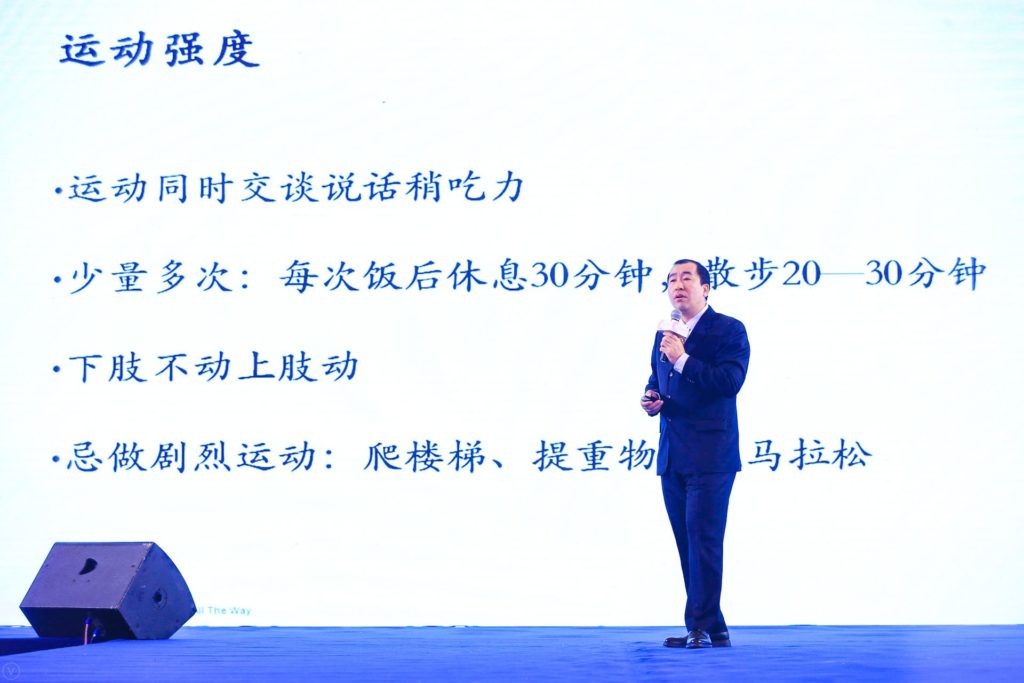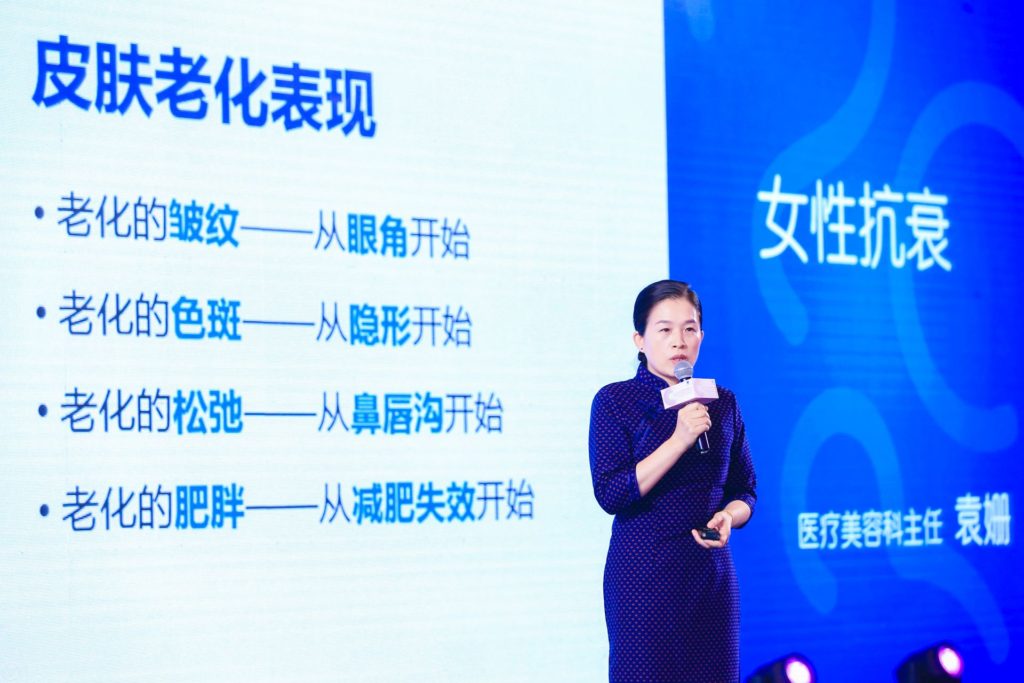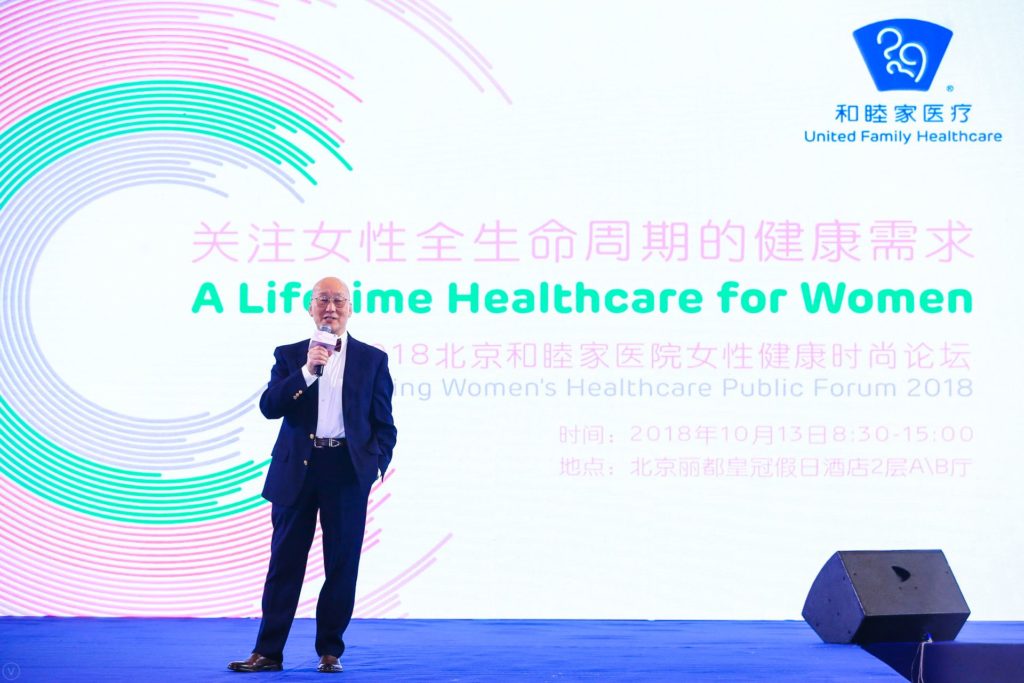Translated from a story by Chen Si at the Legal Evening News
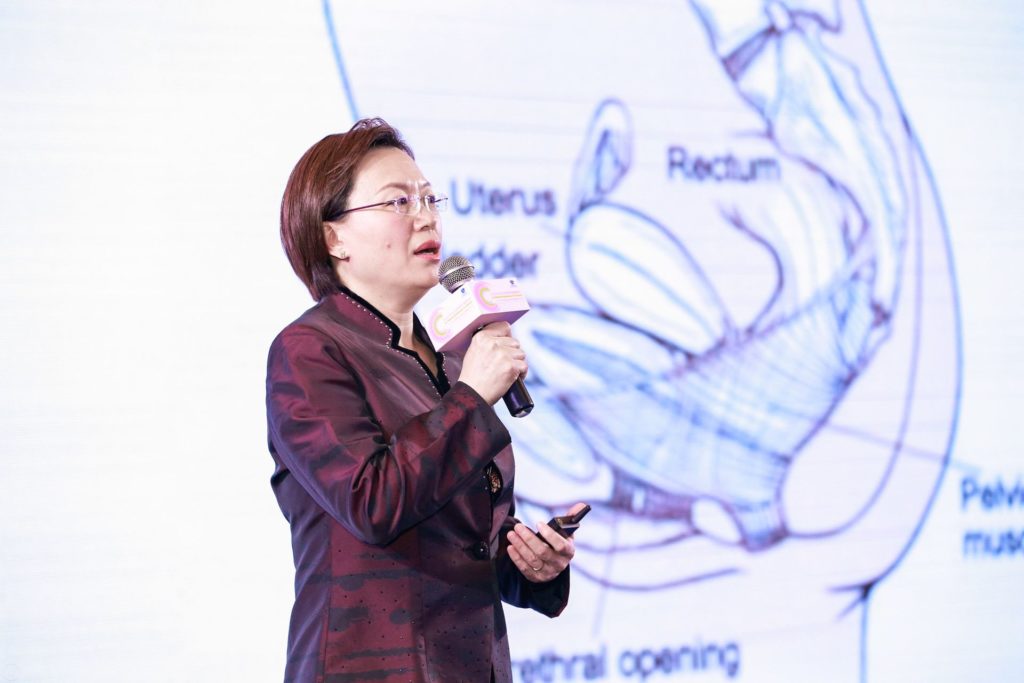
The increasingly fast-pace of modern life has put women under greater pressure and made them more vulnerable to health problems from dysmenorrhea, ovarian cysts, uterine fibroids, to precancerous cervical lesions. Although the incidence rate of gynecological diseases is relatively high, women often do not take them seriously and even intentionally ignore them due to the slow pathological process and private nature of these diseases, causing the conditions to grow worse.
On October 13, Beijing United Family Hospital successfully held the Beijing Women’s Healthcare Public Forum 2018. Fourteen doctors from the Women’s Health Center, Department of Orthopedics, and the Medical Cosmetic Center of the hospital shared their views on topics covering pregnancy preparedness, pregnancy management, childbirth and postpartum recovery, gynecological diseases, and cancer prevention and screening. They also brought forward the idea of ritualizing the popularity of medical knowledge to draw all women’s attention to their own health, and called on every woman to have a gynecologist as her general practitioner to help individualize lifetime health management.
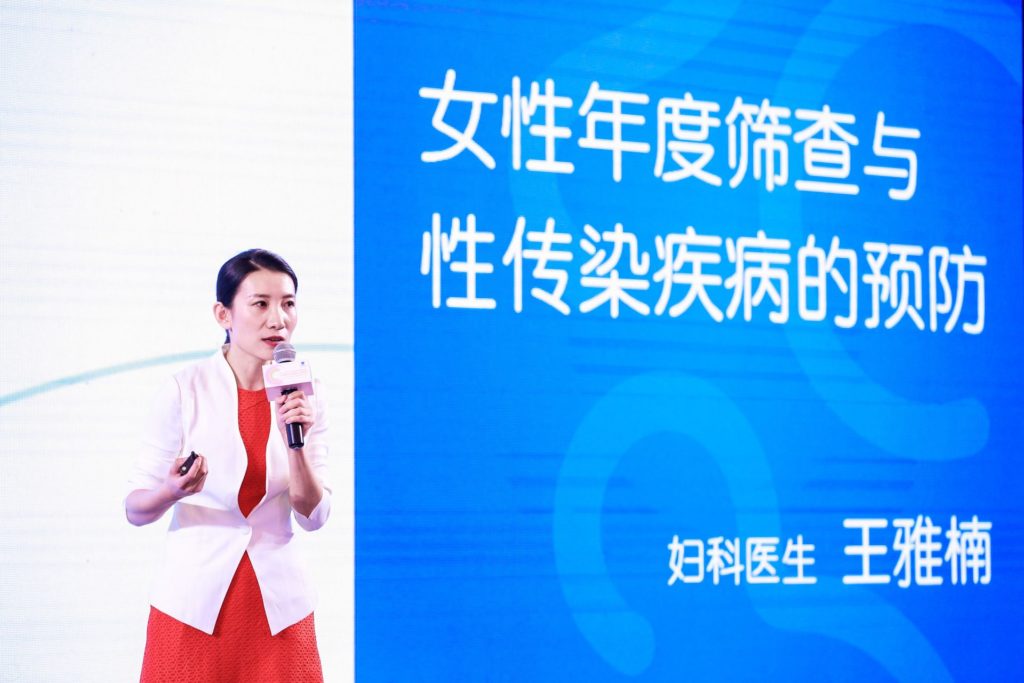
Gynecological diseases plague seven out of ten women
According to the Annual Report on Chinese Women’s State of Life No.10 (2016), gynecological diseases occur in as many as 70 percent of women of reproductive age. Almost every woman has been beset by different degrees of gynecological inflammation in their lifetime, over five percent of whom are even afflicted with disease conditions too severe to go on with normal work and life.
The latest statistics on screening for breast cancer and cervical cancer in Beijing shows that the incidence rates of breast cancer and cervical cancer are 67.09 and 8.98 out of 100,000 women respectively, ranking the top and tenth of malignant tumors in women. In the 260,000 screening tests for the two cancers in Beijing in 2016, 576 cases with cervical cancer and precancerous lesions, as well as 173 cases with breast cancer and precancerous lesions, were detected.
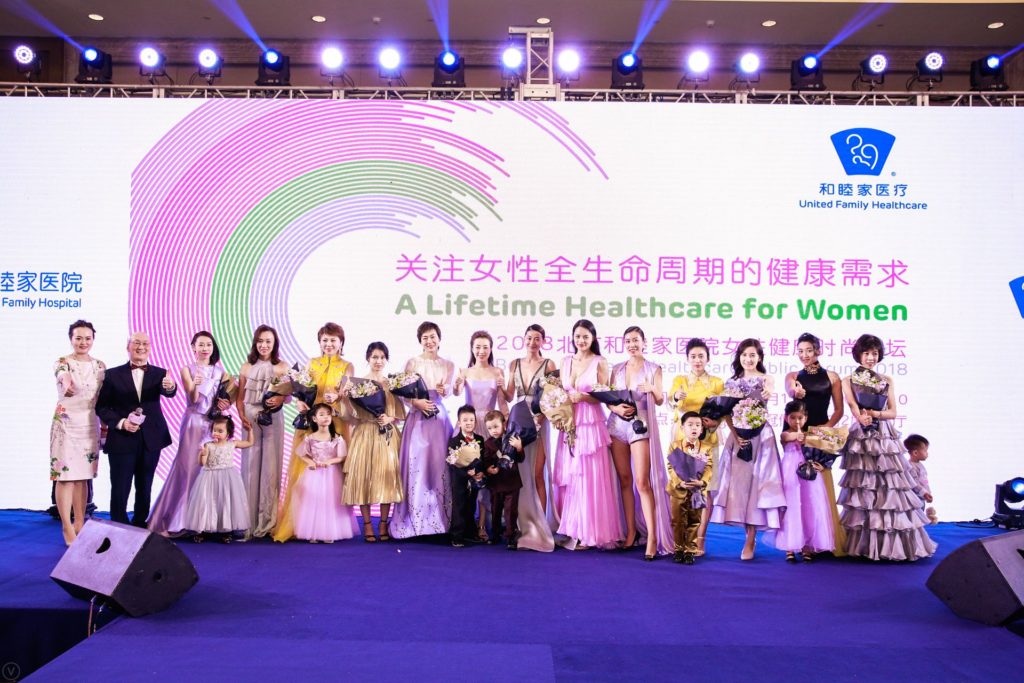
“Make medical knowledge common knowledge; we call on women to manage their lifetime health”
“Medical services need to go hand in hand with the availability of common medical knowledge. If those being served have enough medical knowledge, this will help our medical service providers come up with services that are more targeted and satisfying,” said Dr. Sam Liu, Director of the Women’s Health Center at Beijing United Family Hospital. Different from the forum held for the first time last year, this year’s forum has embraced every stage in a woman’s lifetime. Dr. Liu added, “We provide information of every aspect they need to know about their health, from childhood to adulthood, from infertility to fertilization, from contraception to pregnancy preparedness, and from preventive healthcare to therapeutic medicine.”
Furthermore, experts from the departments of Orthopedics, Medical Cosmetics, and Rehabilitation Medicine were specially invited to educate women about knowledge related to their healthcare, involving surgical and medical treatments, from the big picture to details. By making this a ritual, the forum aims to urge women to pay close attention to their own health throughout the entire lifetime.
As introduced by Dr. Liu, every woman should have a gynecologist as her general practitioner to help with individual health management that is sustainable and completely private. The Women’s Health Center at Beijing United Family Hospital is operating with this philosophy, providing a fixed one-on-one service between patients and doctors.
